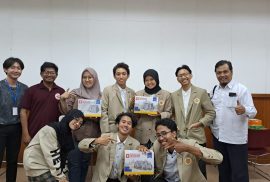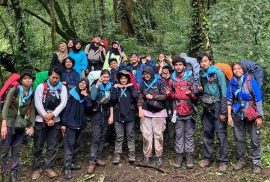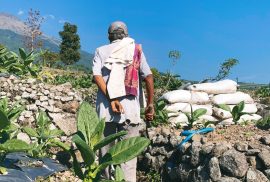Students of Universitas Gadjah Mada (UGM) from various faculties have created a miniature temple model toy that can be played with being arranged one by one using the interlock system found in the miniature stones as found in the original ancient temple. The miniature model was named “Mandira Brick, ” a sacred building built with an array of stones.
The Mandira Brick PKM-K team was accompanied by Fahmi Prihantoro, S.S., M.A. The PKM-K team is a collaboration team from various cross-disciplines, namely Archaeology, Geodesy Engineering, and Banking at Universitas Gadjah Mada. Chaired by Ahmad Zaki, the Mandira Brick PKM-K Team consists of Krista Satya Nugraha (Archaeology 2021), Putri Zelda Prabaswari (Archaeology 2021), Muhammad Zaki Ramadhan (Banking 2021), and Muhammad Farrell Wardhana (Geodesy Engineering 2021).
The background of the idea is that there are still many misconceptions by the public regarding the construction of ancient temples in Indonesia, misunderstood information in the form of myths that are widely believed by the public regarding the construction of temples in ancient times such as temple stones that were glued together using egg whites, temple construction carried out by spirits, and so on. In fact, the temple buildings were built with a stone arrangement with a hook system (Interlock) by the ancestors of the Indonesian Nation.
Concerned by these problems, the UGM PKM-K Mandira Brick Team developed a miniature temple model product of the Ancient Javanese era that adopts a hook system as the original temple, Mandira Brick has three main points in its product, namely education on cultural heritage preservation, education on temple construction systems, and education on temple architectural art. A Mandira Brick product will consist of a baseplate, miniature temple stones, and adhesive glue.
Currently, Mandira Brick has three product variations that have a price range of 185,000 for Ratu Boko Arch, Rp190,000 for Banyunibo Temple, and 190,000 for Sukuh Temple. The temples are taken with the aim of popularising temples that are less well-known but have beauty, tourist attraction, and historical significance that is not inferior to well-known temples such as Prambanan Temple and Borobudur Temple.




